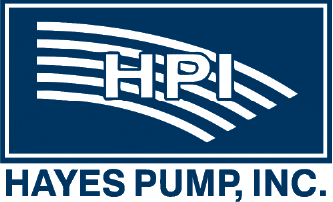Home » Blog » The Role of Municipal Pumps in Public Infrastructure
The Role of Municipal Pumps in Public Infrastructure
How Municipal Pumps Support Public Infrastructure
-Sep-12-2024-08-27-18-8569-PM.png?width=2000&height=1046&name=Hayes%20Pump%20Blog%20Featured%20Image%20(1)-Sep-12-2024-08-27-18-8569-PM.png)
The logistical challenges of providing clean water for municipalities of all sizes are much the same as in ancient Rome. Getting clean water to the places humans inhabit is a challenge met today by municipal pumps and the systems to which they’re connected. These pumps used to transport clean water to customers and remove wastewater for treatment continue to develop, with new technologies that make treating water more efficient. Municipal pumps facilitate this distribution of clean water and sewage removal while controlling stormwater flooding. These pumps have become fundamental to modern society, and their reliability ensures the health and safety of people in communities of all sizes.
Municipal pumps play the following roles in these systems:
- Municipal pumps transport water from rivers, reservoirs, lakes, and other bodies to treatment plants and distribution systems, ensuring that the water supply remains consistent.
- Municipal pumps efficiently manage wastewater from commercial, industrial, and residential areas through the various stages of water treatment.
- Management of sustainable communities has become a goal of modern society, with municipal pumps playing a prominent role in reducing environmental impact, optimizing performance, and reducing operating costs.
- When storms bring heavy rains, rivers overflow their banks, or other disasters result in flooding, municipal pumps remove the excess water to mitigate damage.
As people continue to move to urban areas, municipal pumps help manage water resources in cities globally. Municipal water systems continue to perform basic tasks that make cities possible by aiding water supply, treating wastewater, and managing stormwater to control flooding.
Municipal Pumps: Powering Resilient and Sustainable Communities
Municipal pumps and pumping systems aren’t a one-size-fits-all solution. Often, municipal pumps are designed and customized to fit various applications.
These include:
- Water intake pumping stations: Municipal pumps draw water from lakes, reservoirs, rivers, and other sources, transporting this water to treatment facilities to ensure a regular clean water supply.
- Stormwater pumping stations: To manage excess water when flooding occurs, formidable municipal pumps are needed to protect people and property.
- Sewage pumping stations: Robust municipal pumps are needed to safely remove wastewater and move it to water treatment plants.
- Booster pumping stations: Used to boost water pressure, highly efficient municipal pumps help maintain acceptable pressure levels throughout the system as they transport clean water to customers.
Managing water efficiently takes multiple kinds of municipal pumps. The technology to provide a consistent, clean water supply while managing stormwater and other wastewater continues to develop. Municipal pumps are part of the solution that makes communities more resilient and sustainable.
From Source to Tap - Ensuring Safe and Clean Supply
Water supply management has been a persistent challenge since the first towns and cities were built. It requires sufficient water resources and proper infrastructure to treat water to make it safe for human consumption and other uses. Treatment occurs in three stages. First, municipal pumps bring water from springs, rivers, reservoirs, and lakes, where particulates and other physical contaminants are removed. Next comes the removal of fine solids filtered out in secondary treatments, with municipal pumps introducing chemicals that remove harmful microbes and otherwise sanitize the water. Finally, the pH is adjusted, after which the water is put through carbon treatments and further disinfected before municipal pumps transport the treated water to customers.
Municipal water treatment during the primary phase involves:
- Transporting water from the source with municipal pumps to a water treatment facility without contaminating it.
- Screens and filters are used to strain out larger contaminants.
- Storing water in reservoirs or other containment structures aids natural purification processes and security against droughts.
- Hard water containing sodium carbonate minerals is treated in a process called pre-conditioning.
- Disinfecting water through chlorination or other sterilization processes.
Secondary water treatment involves clumping particles and other solids through coagulation and flocculation processes using iron or chemicals like aluminum sulfate. This makes solids within the water easier to filter out or settle during treatment. When acidic water is used, substances like soda ash or lime are added to increase the pH level. The last stage involves disinfection of the water, a process normally involving chlorination, though ozone can also be used with ultraviolet light to sanitize the water. Municipal pumps then carry the treated water to customers.
Municipal Pumps: Managing Sewage & Wastewater
As with ancient Rome, where raw sewage was emptied into the Tigris River, most human populations concentrated near rivers, oceans, or other bodies of water, where contaminants were diluted when discharged into them. Modern wastewater management has largely stopped such discharges, as science shows how this can negatively affect public health and damage ecosystems. Municipal pumps are the cornerstone of wastewater management, safeguarding the health of residents and playing a pivotal role in managing sewage and wastewater in communities.
Municipal pumps for transporting sewage include:
- Submersible water pumps: These municipal pumps are completely submerged within the fluid they transport; they are commonly used for handling sewage or slurries. Level sensors allow these pumps to handle sewage containing large amounts of solids and water containing fewer contaminants.
- Positive displacement pumps: Employing gears, impellers, or rollers, these hardy municipal pumps displace liquid to make it flow, even viscous slurries containing solid particles. Reliable and precise, positive displacement pumps feature diaphragm membranes and multiple chambers that enhance performance.
- High-pressure pumps: To perform consistently, these municipal pumps feature an axial piston that allows them to generate and maintain higher pressures; their compact design enables them to boost water pressure and power hydraulic mechanisms within a pumping system.
- Circulation pumps: Employed to keep slurries moving, these municipal pumps keep solids from settling while fostering mixing to provide constant circulation within the system; circulation pumps are used for an array of purposes, but largely, they’re used for applications where there’s contact between pump parts and consistent amalgamation is necessary.
- Centrifugal water pumps: The most common type of municipal pump in many sewage systems, centrifugal pumps use centrifugal force to create enough velocity to move water throughout the system. Simply engineered and requiring little maintenance, centrifugal pumps feature rotating impellers with a small inlet and large outlet.
Modern municipal sewage pumps are built for efficiency and low maintenance. Aging municipal infrastructure is increasingly looking for solutions that extend pumping system lifespans.
Municipal Pumps from Hayes
Hayes Pump Inc. provides municipal pumping systems to cities, towns, and larger governmental complexes. With our innovative pumping solutions, Hayes can help optimize water treatment and distribution within municipalities to make it more efficient. Hayes can supply high-quality municipal pumps for clean water and systems for treating sewage and wastewater. Our selection of municipal pumps includes centrifugal, submersible, and other pumps designed to service municipalities of all sizes.
Hayes also designs and installs equipment used in municipal pumps for:
- Condition monitoring
- Controlling flow
- Monitoring flow
- Motor speed control
- Pressure monitoring
Additionally, Hayes manufactures mechanical seals for pumps that work in both dry and wet environmental systems to assist in leak detection and provide solutions for heating and cooling. To learn more about our municipal pumps and pumping systems, along with the parts and services we can supply to maintain them, contact the pump experts at Hayes.




